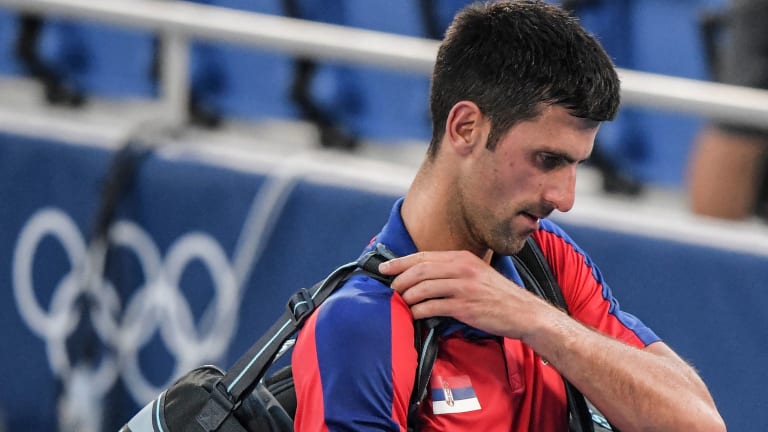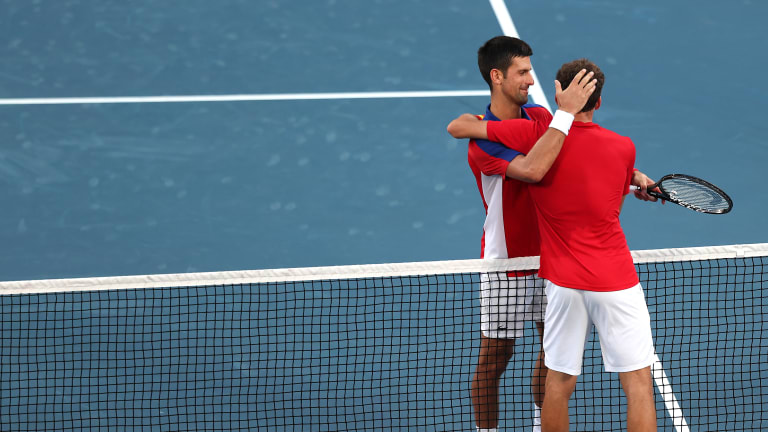Olympic Tournament
Can Novak Djokovic recover to bring home the calendar-year Grand Slam?
By Aug 02, 2021Olympic Tournament
How Novak Djokovic’s Olympic run triggered memories of his fellow Golden Slam winner, Serena Williams
By Aug 10, 2024Olympic Tournament
11-9, again: With Dan Evans, Andy Murray saves more match points, keeps career alive at Olympics
By Jul 30, 2024Olympic Tournament
Carlos Alcaraz, Rafael Nadal clinch second victory in Paris Olympics men’s doubles
By Jul 30, 2024Olympic Tournament
"Cheated" Coco Gauff loses cool at Olympics, exits to Donna Vekic in Paris
By Jul 30, 2024Olympic Tournament
Rafael Nadal aims to level head-to-head with Novak Djokovic at Paris Olympics on Monday
By Jul 28, 2024Olympic Tournament
Rafael Nadal and Novak Djokovic to clash in second-round blockbuster at Paris Olympics
By Jul 28, 2024Olympic Tournament
Tennis guide: who is playing the 2024 Paris Olympics at Roland Garros?
By Jul 04, 2024Olympic Tournament
Alex de Minaur, Ajla Tomljanovic to lead Australia's tennis team to Paris Olympics
By Jun 26, 2024Olympic Tournament
Novak Djokovic is confirmed for Paris Games, Serbian Olympic Committee says
By Jun 18, 2024Can Novak Djokovic recover to bring home the calendar-year Grand Slam?
The world No. 1's brutal ending at the Tokyo Olympics, where he finished with no medals, leaves major questions about his physical and mental states heading into his US Open preparation.
Published Aug 02, 2021
Advertising
Advertising

Djokovic won his first nine singles sets at the Ariake Tennis Park, before his tournament took a turn south.
© AFP via Getty Images
Advertising
Advertising

Before Saturday in Tokyo, Djokovic's lone loss in his first five meetings with Carreño Busta came at the 2020 US Open when he was defaulted.
© NAOMI BAKER/GETTY IMAGES